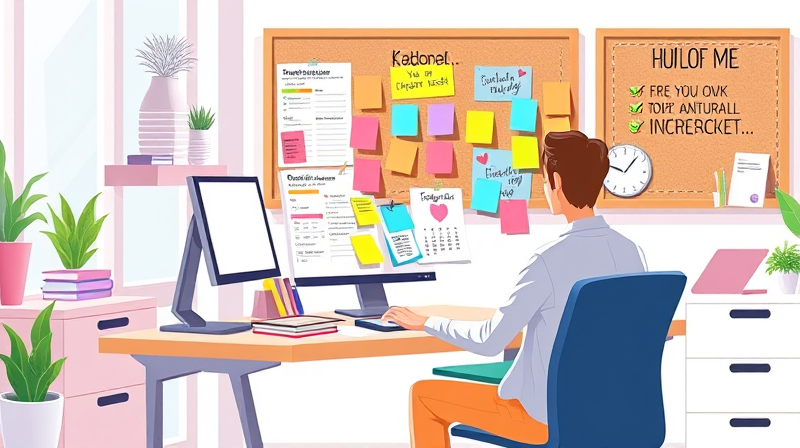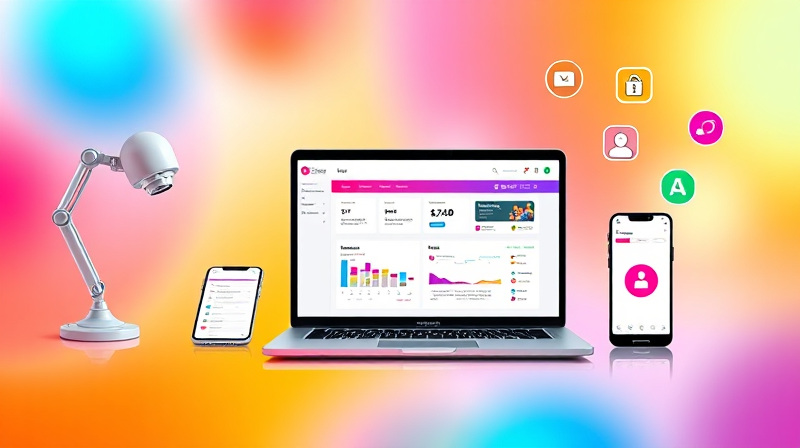In our modern fast-paced society, balancing professional responsibilities with personal life is more important than ever. The constant pressure and high demands of work often lead to burnout and exhaustion, impacting both mental and physical health. Understanding how to reclaim your time and set priorities for self-care is essential for maintaining overall well-being.
Recent statistics emphasize the growing need for balance. According to data from 2025, work-life balance has overtaken salary as the main priority for employees. With 83% of workers placing more importance on balance than pay, and 82% of employees reporting experiencing burnout at least occasionally, it is clear that individuals and organizations need to reconsider how they approach work-life harmony.
Strategies for Achieving Balance
A well-rounded life requires deliberate strategies, both personal and professional, to prevent exhaustion and nurture a healthy work environment. Below are a series of actionable steps that individuals and companies can take to help manage stress and foster resilience in all areas of life.
1. Prioritize Self-Care - Taking time for yourself is not a luxury; it is a necessity.
- Meditation and Journaling: Regular meditation and journaling help clear your mind and manage stress levels. These practices can boost mindfulness and provide insights into personal habits that may be counterproductive.
- Embrace Exercise and Nutrition: Establishing routines that include regular exercise, proper nutrition, and adequate sleep can significantly enhance your physical health and emotional stability.
- Connect with Nature: Spending time outdoors can reduce anxiety and refresh your spirit, making it easier to handle daily challenges.
2. Set Clear Boundaries - It is vital to delineate the limits between work and personal time. Designate specific work hours and create a dedicated workspace, ensuring that work responsibilities do not bleed into your personal time. Additionally, turning off notifications and refraining from checking emails after official hours can greatly minimize work-related stress.
3. Embrace Flexibility - The shift towards remote work and flexible schedules has paved the way for improved work-life balance. Employees should feel empowered to manage their own time while still meeting crucial deadlines and maintaining productivity. When individuals have the freedom to design their workday, it leads to increased job satisfaction and overall well-being.
4. Foster Connections - Human connection is essential for preventing burnout. Actively seek out opportunities to interact with colleagues, mentors, and friends. Cultivating both professional networks and personal relationships can help you feel less isolated and more capable of handling work stress. Social interactions, whether through mentoring, networking events, or community service, enrich our lives and provide an effective counterbalance to work pressures.
5. Regularly Assess Workload - For both employees and employers, it is important to constantly evaluate work responsibilities. Employers should ensure that workloads match employees’ skillsets and that job responsibilities are evenly distributed. Regular assessments can identify stress points and allow for timely adjustments, ultimately leading to lesser burnout and improved morale.
Organizations also play a pivotal role in nurturing a balanced work environment. Companies that implement employee-centric policies not only boost well-being but also see tangible benefits in productivity and retention.
Organizational Support and Policies - Businesses can make a substantial impact by creating policies that encourage a healthy lifestyle and work environment. For example, organizations that embrace all nine of the American Heart Association's recommended policies have seen 91% of their employees report positive workplace well-being. In contrast, organizations that neglect such policies experience significantly lower satisfaction levels.
Employers are encouraged to provide learning and development opportunities to help employees future-proof their careers. These opportunities not only build skills but also foster a sense of appreciation and motivation within the workforce. By promoting professional growth and overall well-being, companies lay the foundation for a resilient and engaged workforce.
Furthermore, establishing flexible work options, such as remote work or adjustable schedules, allows employees to manage their time better. When work schedules align with individual lifestyles, it allows for increased creativity and investment, both personally and professionally.
In addition, fostering a supportive work environment where clear boundaries are respected can lead to lower overall stress levels. Instructions to limit technology usage after hours are crucial, as disengaging from work devices helps signal that personal time has begun. Such conscious efforts go a long way in preserving mental space and fostering a culture of health and productivity.
Conclusion
Achieving and maintaining the right balance between your career and personal life is not only essential for avoiding burnout, but also for cultivating a fulfilling existence. By prioritizing self-care, setting clear boundaries, embracing flexibility, fostering meaningful connections, and regularly assessing workloads, individuals can successfully navigate the challenges of modern work life.
The journey towards a well-balanced lifestyle requires commitment and continuous adjustments. However, when both employees and organizations prioritize these strategies, the results speak for themselves: a happier, healthier, and more engaged workforce. By choosing to invest in your wellbeing today, you are crafting a more resilient foundation for both personal satisfaction and professional success.
Remember, harmony between career and personal time is a dynamic, ongoing process. Embrace the changes and commit to a balanced future where your work supports your life, and your life fuels your work.








